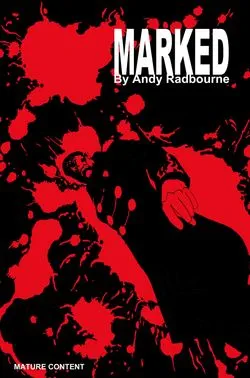⠪
The Orville New HorizonsSeason 3 Ep 1: Electric Sheep
Published: 07th July 2022.
My musings about The third season of The Orville ep 1: Electric Sheep
Greetings everyone,
Let's indulge in the fascinating world of Orville Season Three. A blend of the elements that originally made us fall in love with Star Trek, Orville offers a mix of provocative storylines with a dash of comedic relief, now fine-tuned from its debut season.
The focus of the recent episodes is on a character named Isaac who, despite his involvement in the war and the fact that he saved them, experiences some hostility from his crew members. A critical bystander in this evolving story is Ensign Charlie Burke, a new crew member who harbours a deep hatred for Isaac due to a past trauma she associates with his kind. Isaac, struggling with the hostility, finds himself in his lab, where he decides to end his existence, an act interpreted by those left behind as suicide.
Breaking from Star Trek's traditionally strict personality, Orville uses the occasional office humour which humanizes the characters and injects light-heartedness into the storytelling. This contrasting approach, coupled with the outstanding visuals made possible by an increased budget, serves to freshen up the storytelling and make Orville stand out on its own.
In an episode titled "Electric Sheep", we see Isaac grappling with the collective frostiness of his crew. An incident involving a wall defacement confirms this sentiment, with Dr Claire Finn, one of his closest companions, revealed as the culprit. The ensuing confrontation with Finn's son, Marcus, heightens Isaac's distress and leads to his decision to 'commit suicide', a move that starts a thematic exploration of the idea.
Isaac’s ‘suicide’ is further complicated when it's revealed that there may be a chance to bring him back. This is prompted by the discovery of redundancy in Isaac’s being, but only Charlie, who despises him, can initiate it. After a heartfelt plea from Marcus, she reluctantly agrees to help bring Isaac back.
As Orville’s story slowly unfurls the layers of each intricate plot, the character of Isaac raises many profound questions about the nature of emotions, consciousness, and the impact of one’s existence on those around him. His 'decision’ to end his life, for instance, is a stark juxtaposition between what is wholly logical to Isaac and wholly illogical to a person suffering from emotional distress. While he does not admit it, his actions indicate a certain level of emotional connection, particularly with Finn's family.
It’s the subtle and sensitive handling of such grave topics that separates Orville Season Three from its predecessors. Using the narrative of an emotionless AI, it courageously shines its lights on difficult topics like suicide while keeping its charm intact, offering viewers both thought-provoking existential questions mixed with a lot of fun. So, while the show can sometimes be a bit over-the-top with its big-budget CGI, it finds its groove in its engaging storytelling and compelling character development.
In conclusion, Orville Season Three promises an intriguing blend of thematic depth, stunning graphics, and emotional resonance, offering a delightful view for not just Star Trek fans but anyone who appreciates a well-woven story. As we look forward to episode 2, peace out!
Let's indulge in the fascinating world of Orville Season Three. A blend of the elements that originally made us fall in love with Star Trek, Orville offers a mix of provocative storylines with a dash of comedic relief, now fine-tuned from its debut season.
The focus of the recent episodes is on a character named Isaac who, despite his involvement in the war and the fact that he saved them, experiences some hostility from his crew members. A critical bystander in this evolving story is Ensign Charlie Burke, a new crew member who harbours a deep hatred for Isaac due to a past trauma she associates with his kind. Isaac, struggling with the hostility, finds himself in his lab, where he decides to end his existence, an act interpreted by those left behind as suicide.
Breaking from Star Trek's traditionally strict personality, Orville uses the occasional office humour which humanizes the characters and injects light-heartedness into the storytelling. This contrasting approach, coupled with the outstanding visuals made possible by an increased budget, serves to freshen up the storytelling and make Orville stand out on its own.
In an episode titled "Electric Sheep", we see Isaac grappling with the collective frostiness of his crew. An incident involving a wall defacement confirms this sentiment, with Dr Claire Finn, one of his closest companions, revealed as the culprit. The ensuing confrontation with Finn's son, Marcus, heightens Isaac's distress and leads to his decision to 'commit suicide', a move that starts a thematic exploration of the idea.
Isaac’s ‘suicide’ is further complicated when it's revealed that there may be a chance to bring him back. This is prompted by the discovery of redundancy in Isaac’s being, but only Charlie, who despises him, can initiate it. After a heartfelt plea from Marcus, she reluctantly agrees to help bring Isaac back.
As Orville’s story slowly unfurls the layers of each intricate plot, the character of Isaac raises many profound questions about the nature of emotions, consciousness, and the impact of one’s existence on those around him. His 'decision’ to end his life, for instance, is a stark juxtaposition between what is wholly logical to Isaac and wholly illogical to a person suffering from emotional distress. While he does not admit it, his actions indicate a certain level of emotional connection, particularly with Finn's family.
It’s the subtle and sensitive handling of such grave topics that separates Orville Season Three from its predecessors. Using the narrative of an emotionless AI, it courageously shines its lights on difficult topics like suicide while keeping its charm intact, offering viewers both thought-provoking existential questions mixed with a lot of fun. So, while the show can sometimes be a bit over-the-top with its big-budget CGI, it finds its groove in its engaging storytelling and compelling character development.
In conclusion, Orville Season Three promises an intriguing blend of thematic depth, stunning graphics, and emotional resonance, offering a delightful view for not just Star Trek fans but anyone who appreciates a well-woven story. As we look forward to episode 2, peace out!
Comments:
No comments yet.

